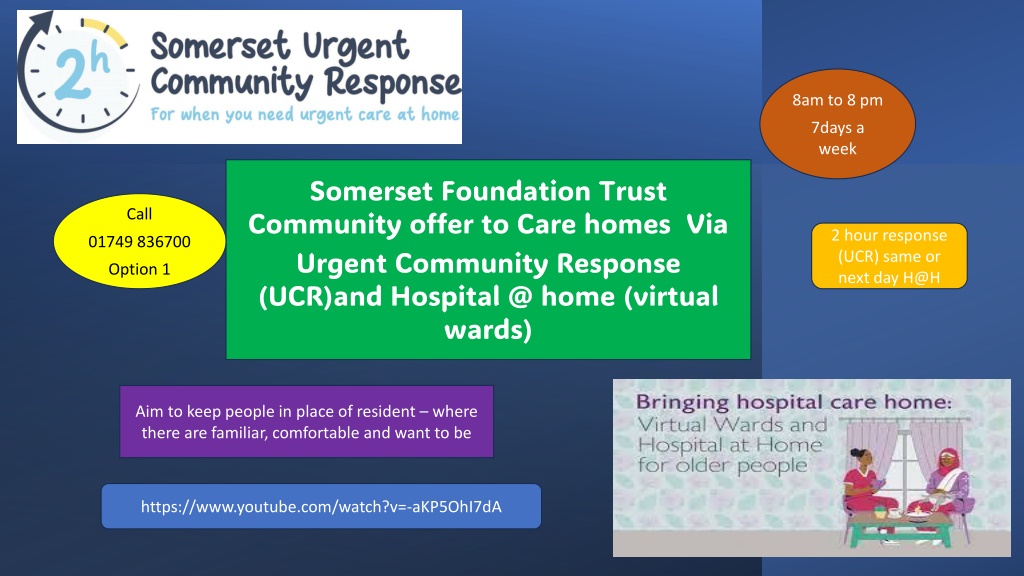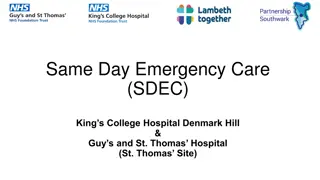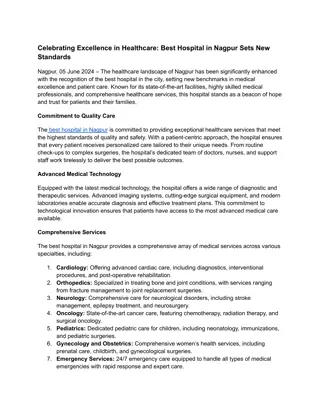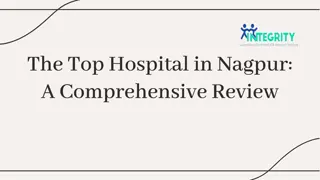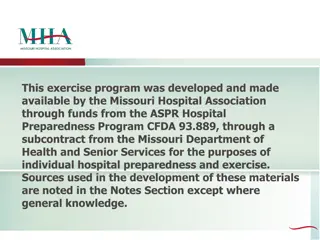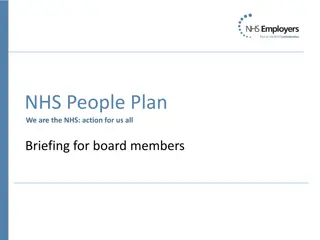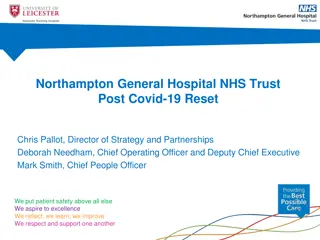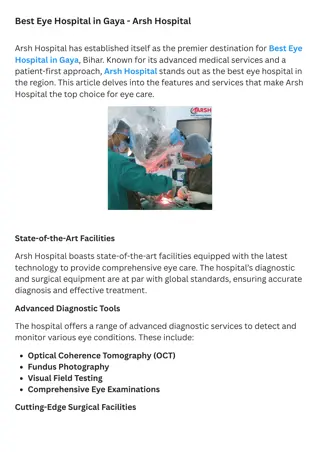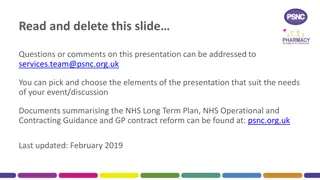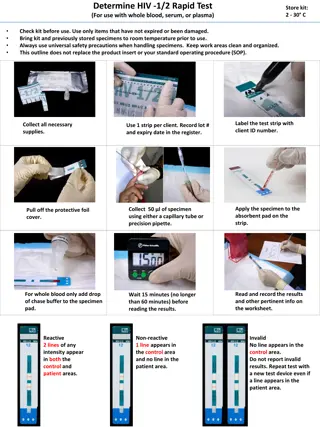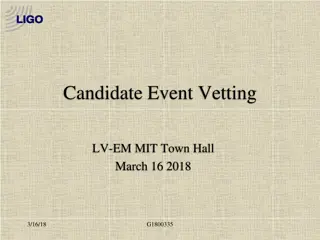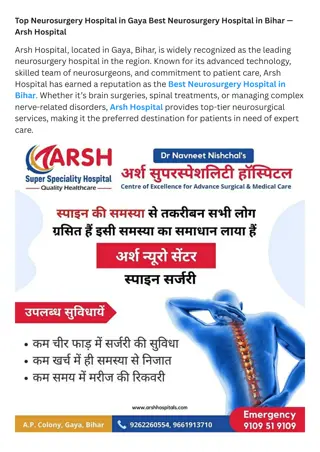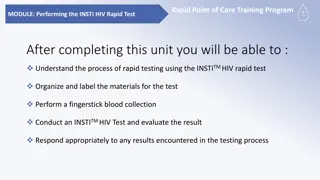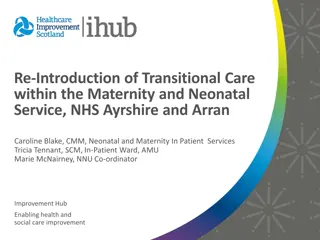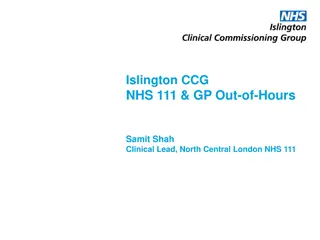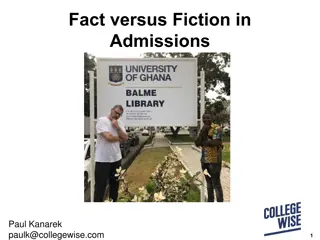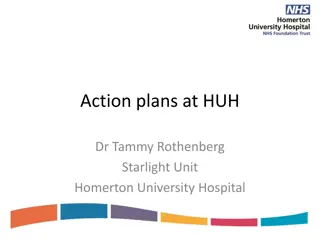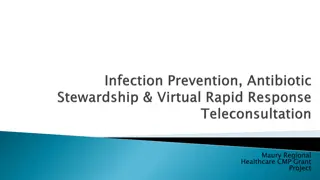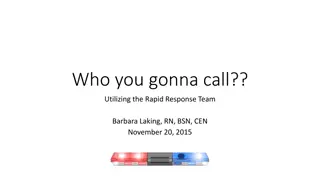Rapid NHS Response Teams: Enhancing Home Care and Avoiding Hospital Admissions
Somerset Foundation Trust Community offers a comprehensive range of services, including Rapid Response, Urgent Community Response (UCR), and Hospital@Home (H@H). These services aim to provide timely and effective care to individuals in their homes, reducing the need for hospital admissions. Rapid NHS response teams, with a 2-hour or same-day response capability, assist people in staying well at home. The Virtual wards and H@H support patients who would otherwise be hospitalized, offering acute care, monitoring, and treatment in the comfort of their own homes. The Urgent Community Response teams provide critical care to prevent hospitalization and promote independent living. Various conditions and needs, outlined in the 9 pillars of UCR, are addressed promptly to ensure the well-being and safety of individuals.
Download Presentation

Please find below an Image/Link to download the presentation.
The content on the website is provided AS IS for your information and personal use only. It may not be sold, licensed, or shared on other websites without obtaining consent from the author. Download presentation by click this link. If you encounter any issues during the download, it is possible that the publisher has removed the file from their server.
E N D
Presentation Transcript
8am to 8 pm 7days a week Somerset Foundation Trust Community offer to Care homes Via Urgent Community Response (UCR)and Hospital @ home (virtual wards) Call 2 hour response (UCR) same or next day H@H 01749 836700 Option 1 Aim to keep people in place of resident where there are familiar, comfortable and want to be https://www.youtube.com/watch?v=-aKP5OhI7dA
What is Rapid response ? H@H/Virtual wards? and UCR? Rapid NHS response teams to help people stay well at home can be within 2 hours or same day max 24 hours Urgent community response teams provide urgent care to people in their homes which helps to avoid hospital admissions and enable people to live independently for longer. 2-hour response Virtual wards or Hospital@ Home (H@H) support patients, who would otherwise be in hospital, to receive the acute care, remote monitoring and treatment they need in their own home or usual place of residence. Same day or next day response
9 pillars of UCR Condition/need Supportive definition With no apparent serious injury, including to the head, back, hip, or where able to rule out a fracture, and where there has been no loss of consciousness, but where care/support is required within two hours to prevent hospital admission. Level 1 and 2 fallers from SWAST please see separate slides for more details Fall A frailty-related condition which may result in loss of strength, speed, energy, activity, muscle mass, resilience to minor health strains and subsequent loss of independence. Decompensation caused by a minor stressor event, such as a urinary tract infection (UTI), which can cause a sudden or disproportionate decline in function. Decompensation of frailty The person may have a gradual change in functional ability or ability to manage at home and with activities of daily living. Mobility loss can also be sudden, leading to an acute need. Reduced function/ deconditioning /reduced mobility If core palliative/end-of-life care services are not available to respond, a two-hour UCR service will help maintain a person close to the end of their life at home, offering symptom control/pain relief in line with a person s wishes. Palliative/end-of-life crisis support Alongside an assessment, makes a person safe and optimises functional ability to support prevention of admission. a person experiencing a crisis/at risk of hospital admission should be made safe and ongoing care provided where appropriate by reablement or rehabilitation services. Urgent equipment provision to support Increased or new confusion, acute worsening of dementia and/or delirium (excluding sepsis requiring hospital admission). The patient should be assessed and physical health needs managed to establish the cause (e.g. UTI, cellulitis, pneumonia) so that their needs are managed safety at home. Confusion/delirium Where a person has a blocked catheter and/or pain from a catheter related issue and is at risk of harm and has a very high risk of admission to hospital. Where a district nurse service does not have the capacity to respond or is part of the explicit function of the two hour UCR team. Urgent catheter care Examples of this include urgent injections and where the person has experienced a hypoglycaemic episode (now resolved) or where blood sugar management is a concern and the person is at risk of hospital admission as a result Urgent support for diabetes Provide healthcare where a carer who meets a person s healthcare needs is no longer able to do this and the person they care for now requires a two-hour UCR. Unpaid carer breakdown which, if not resolved, will result in a healthcare crisis for the person they care for
Somerset Primarily Link (SPL) on Call 01749 836700 Option 1 8am to 8pm How to refer Any further questions or enquires or access issues please contact Louise.bird@somersetft.nhs.uk or 07917371972
